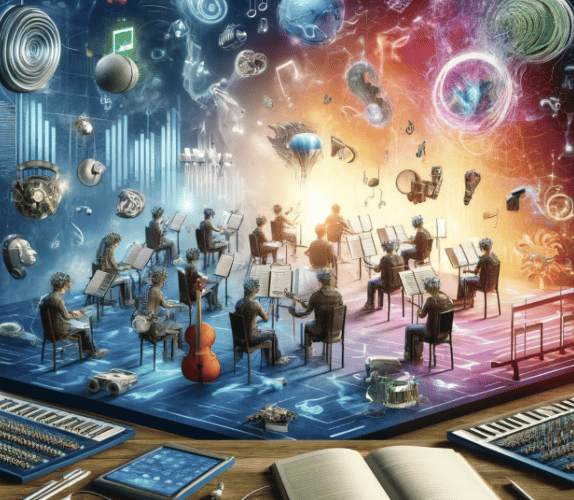The Future of Music Education
Adapting to Technology and Changing Landscapes
4/11/20243 min read


The Shift Toward Informal Learning Environments
The Upside
The future of music education is also seeing a shift towards more informal, student-led learning environments, influenced by the DIY culture of learning through YouTube, social media, and peer collaboration. This approach encourages creativity, self-directed learning, and the exploration of diverse musical genres and practices beyond the classical canon.
The Challenge
While informal learning environments can foster a more inclusive and exploratory approach to music education, they also pose challenges in ensuring a structured and comprehensive learning experience. Balancing freedom and discipline, and integrating informal learning with formal education objectives, requires a nuanced approach from educators.
Navigating the Changing Landscape of Music Careers
The Upside
With the music industry's evolution, music education is expanding its focus to include music business, digital distribution, marketing, and entrepreneurship. This broader curriculum is preparing students for a wider array of career paths within and beyond traditional performance roles.
The Challenge
The rapidly changing nature of the music industry means that educators must continually update the curriculum and their knowledge to stay relevant. This can be a daunting task, given the pace of technological and industry changes.
The Future Is Now
As we look to the future, it's clear that music education is at a crossroads. The integration of technology, the shift towards interdisciplinary and informal learning environments, and the broader scope of career preparation are all signs of a vibrant, evolving field. However, navigating these changes requires thoughtful consideration of how to leverage technology without losing the essence of music education, ensuring equitable access, and preparing both educators and students for an uncertain but exciting future.
Stay Tuned and Informed
Are you passionate about music education and intrigued by its evolving landscape? Subscribe to our newsletter for the latest trends, insights, and innovative approaches to music learning and teaching. Whether you're an educator seeking to enrich your pedagogy, a student exploring the frontiers of music, or simply a music education enthusiast, our curated content will keep you informed and inspired.
Sign up now to join a community committed to shaping the future of music education.
The evolution of technology has left an indelible mark on nearly every facet of our lives, and music education is no exception. As we navigate through the 21st century, the traditional paradigms of teaching and learning music are undergoing transformative changes, propelled by digital innovations and shifting cultural landscapes. This blog post explores the burgeoning trends shaping the future of music education, delves into the challenges and opportunities they present, and proposes how educators, students, and institutions can adapt to these evolving dynamics.
Embracing Digital Platforms and Tools
The Upside
Digital platforms and tools are democratizing music education, making it more accessible and affordable than ever before. Online tutorials, virtual reality (VR) instruments, and mobile apps offer learners the flexibility to practice and hone their skills anytime, anywhere, without the need for physical classrooms or expensive instruments. Artificial Intelligence (AI)-driven applications are providing personalized learning experiences, adapting to individual learners' pace and style, thereby optimizing the educational journey.
The Challenge
However, the digital divide remains a significant hurdle. Access to the necessary technology and reliable internet connectivity is not universal, creating disparities in who can benefit from these advancements. Moreover, the tactile experience of learning an instrument and the irreplaceable value of face-to-face mentorship and ensemble playing could be diluted if not balanced with technology-enhanced learning.
The Rise of Interdisciplinary Approaches
The Upside
The integration of music with other disciplines such as mathematics, science, and language arts is fostering a more holistic educational approach. Music technology, including software for composition, sound design, and audio engineering, is being woven into the curriculum, equipping students with skills that are increasingly relevant in today's digital and entertainment-driven economy.
The Challenge
Creating an interdisciplinary curriculum requires educators who are not only adept in their musical expertise but are also versed in integrating technology and other subjects into their teaching. This necessitates ongoing professional development and a shift in traditional teaching paradigms, which may be met with resistance from institutions rooted in classical training methodologies.
